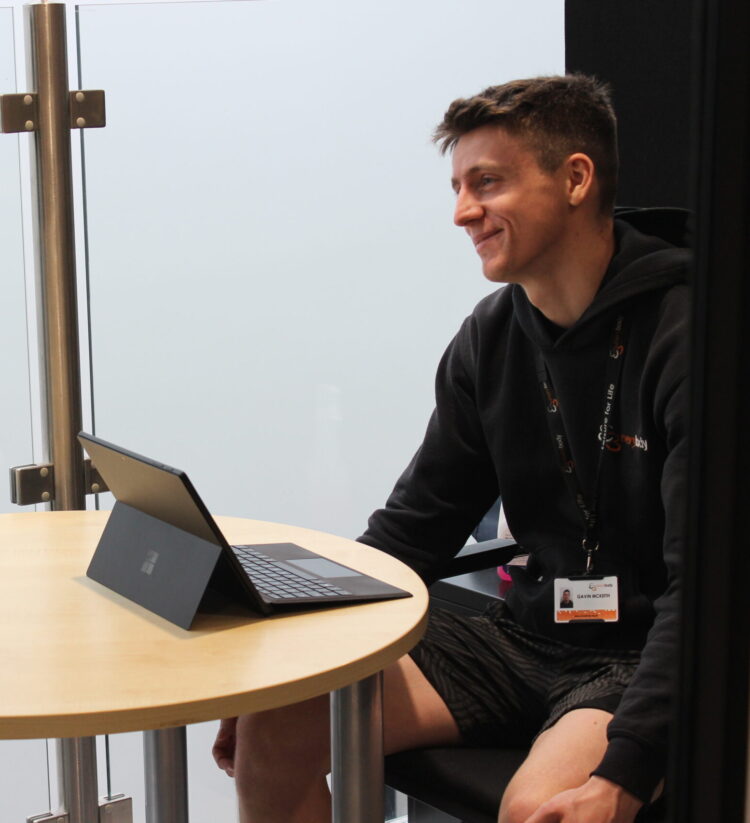World Cancer Day 2022
Blog by Gavin McKeith Health Referral Lead at Everybody Sport and Recreation

Gavin McKeith
When it comes to cancer, evidence suggests that one in three of the population will be diagnosed with the disease during their lifetime. This means that at any one time there are over 1.8 million cancer survivors in the UK. With such high figures, it’s important for us to understand what we can do to help with prevention of cancer occurring in our own lives.
There are some lifestyle changes which we all are able make to, which helps to reduce risk factors such as being to be physically active! There is strong evidence demonstrating the positive effects of being active has on our physical and mental wellbeing and during and after cancer diagnosis.
So how can exercise reduce the risk factor of Cancer?
According to the World Cancer Research Fund (WCRF, 2018), the following recommendations can help support cancer prevention:
- Having a healthy weight & reducing body fat percentage
- Exercising regularly
- Eating more fruit, vegetables & pulses
- Limiting the consumption of “Fast Food”, process foods high in fat, starches or sugars
- Limiting the consumption of red & processed meat
- Limiting consumption of sugar sweetened drinks
- Limiting alcohol consumption
- Stopping smoking
How can exercise help after a Cancer diagnosis?
Research has suggested that after a diagnosis, the benefits of exercise don’t stop but can actually help with the following (Thomas R, 2014):
- Improving quality of life
- Reducing side effects of medication
- Lowering the risk of their cancer returning
- Generally surviving longer
How can we help?
The physical activity guidelines for people going through cancer are similar to the guidelines from the UK public health guidelines for the general population. It’s recommended that cancer survivors should (ACSM, 2021):
- Reduce sedentary behaviour
- Increase exercise levels – exercise is generally safe for cancer survivors both during & after treatment.
- Undertake at least 150 minutes of moderate aerobic activity throughout the week
- Undertake resistance training moderately that involve all muscle groups at least 2 or more days a week
- Stretch major muscle groups & engage in balance activities
In order to help individuals, engage in these forms of exercises, here at Everybody Sport & Recreation, we have Level 4 Cancer Specialist Instructors who have a good understanding of the effects of cancer and its treatments, to help ensure that when you engage in exercise, you’re doing it in a safe, appropriate and effective way. Each diagnosis of cancer is very specific to the individual, which is why our specialist instructors will prescribe a tailored programme particular consisting of the following:
- The type of treatment(s) you are receiving or have undertaken, e.g., chemotherapy
- The specific effects of the disease and treatment on the body. These may be specific to an area of the body or can have more wide-spread effects throughout the body.
- What stage you are at in your treatment. The ability of a cancer survivor to participate in exercise (and their training response) may vary depending on whether they are currently receiving or have completed treatment.
12 Week Exercise Referral Programme £27.00
Everybody Sport and Recreation offers a 12-week Cancer Rehabilitation Exercise Programme , costing £27.00 or a pay as you go option is available at £3.60 per session. The programme is designed to support people living and beyond with Cancer. The programme consists of a face to face consultation with a Cancer Specialist Instructors, where they’ll be able to discuss personal goals, assess physical and mental wellbeing and prescribe a tailored exercise programme. You will commence your chosen exercise regime and monitored closely by your Instructor. The programme includes full access to Everybody facilities, activities include gym based, group exercise classes and swimming.
A referral is required from a health professional to access the programme. Please contact Everybody Healthy on [email protected], phone: 01270 685589 to find out more.
References
ACSM, 2021. ACSM Cancer Guidelines for Exercise and Prescription.
Research, W. C. R. F. I. f. C., 2018. Recommendations and Public Health and Policy implications. Diet, Nutrition, Physical Activity and Cancer. a Global Perspective , s.l.: s.n.
Thomas R, H. M. A.-A. A., 2014. Physical activity after cancer: An evidence review of the international literature. British Journal of Medical Practitioners, 7(1), pp. 708-713.
